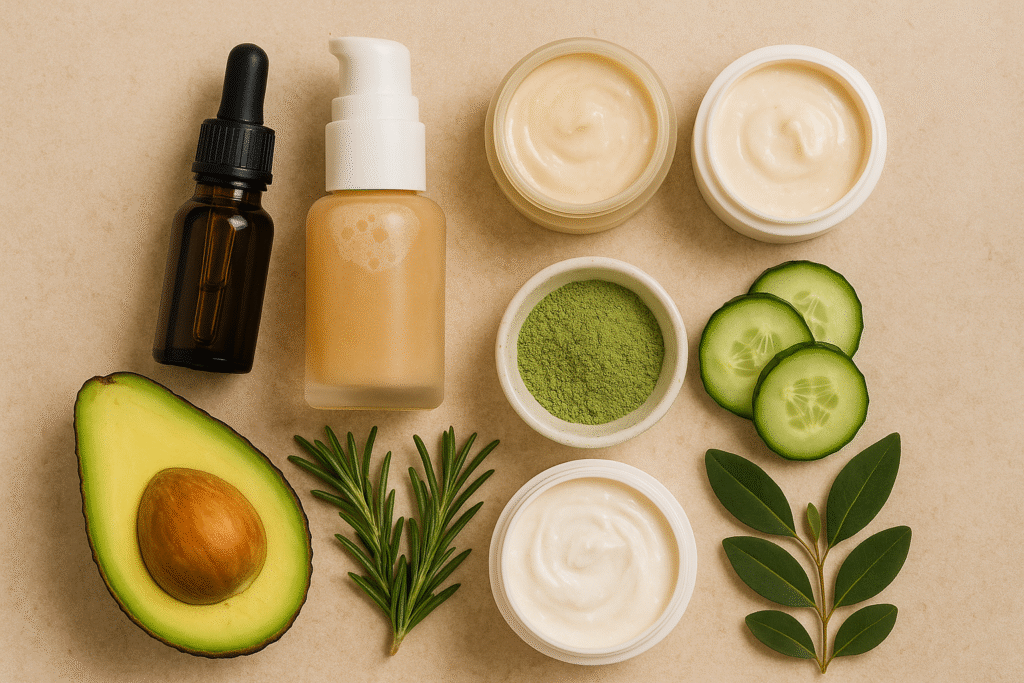Nature or chemistry? The truth about cosmetic products
More and more people are turning to natural cosmetics - out of conviction, because of sensitive skin or to protect the environment and health. But what is really behind the supposed benefits? And is Natural cosmetics actually Better for the skin than conventional products? In this article we look at the Advantages of natural cosmetics to the bottom - transparent, honest and well-founded.
What is meant by natural cosmetics?
Natural cosmetics is not just a marketing term, but describes products that rely on ingredients of natural origin. These include vegetable oils, flower extracts, waxes, essential oils and mineral pigments.
Typical for natural cosmetics:
- No microplastics
- No silicone, paraffin or synthetic fragrances
- Often vegan & cruelty-free
- Environmentally friendly packaging & production
- Frequently certified (e.g. COSMOS, NATRUE, BDIH)
The benefits of natural cosmetics: What are the benefits?
🌱 1. gentle on sensitive skin
Natural cosmetics usually do not contain aggressive preservatives, alcohol denat. or synthetic fragrances - all substances that often cause irritation. Plant-based alternatives such as aloe vera, shea butter or jojoba oil have a soothing and regenerating effect.
🌿 2. less allergenic potential
Although natural substances can also be allergenic, the risk is often lower with certified natural cosmetics - mainly because problematic ingredients are avoided.
♻️ 3. Sustainability for skin & environment
Natural cosmetics stand for resource-conserving production, biodegradable formulations and plastic-free or recycled packaging. Choosing natural cosmetics is often a decision in favour of the planet.
💧 4. better skin balance in the long term
Many synthetic skincare products provide quick effects but disrupt the skin microbiome in the long term. Natural cosmetics tend to support the skin in its natural function without damaging the protective barrier.
Are there any disadvantages?
Yes - natural cosmetics are not automatically "better", but must suit your skin type. Possible disadvantages:
- Short shelf life without synthetic preservatives
- Some essential oils can have an irritating effect
- Fewer "wow" effects with anti-ageing compared to high-tech cosmetics
- Tolerance is individual - "natural" does not mean "non-irritating"
Natural cosmetics: who are they ideal for?
- People with sensitive or reactive skin
- Allergy sufferers (after patch test)
- Sustainability-conscious consumers
- Pregnant or breastfeeding women who pay attention to non-irritating cosmetics
- People with skin diseases (e.g. rosacea, neurodermatitis - by arrangement)
What should you look out for when buying?
- Certification: COSMOS, NATRUE, BDIH etc.
- Check ingredients: Nature can also be irritating (e.g. citrus oils)
- Packaging: Reusable, plastic-free or recycled
- Transparency of the brand: Origin and processing openly communicated?
Conclusion: Natural cosmetics are not a miracle cure - but a good choice
The Natural cosmetics advantages are obvious - especially for sensitive skin, environmental awareness and the desire for transparent ingredients. If you make a conscious choice, know your skin type and pay attention to certified products, natural cosmetics are a long-term skin-friendly alternative to conventional skincare.
